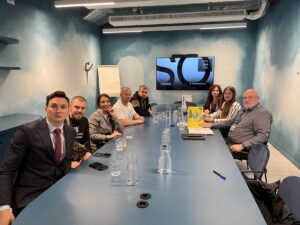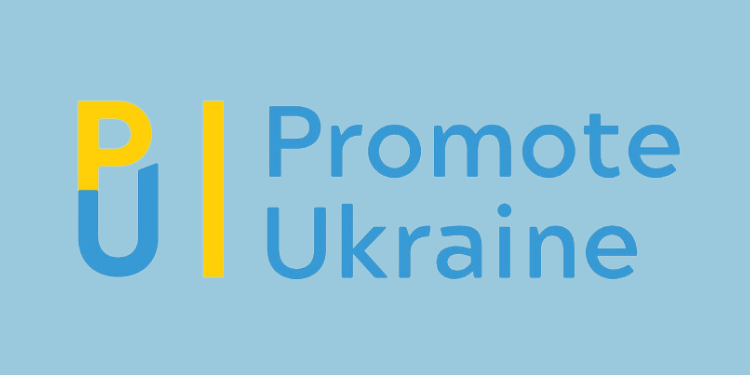Supporting Ukraine: EUROMIL’s meeting with PromoteUkraine
On 30 May, EUROMIL met with a delegation of veterans of Promote Ukraine, a non-profit civil society and advocacy organization for Ukraine.
The meeting was welcomed by Emmanuel Jacob, EUROMIL’s President, who highlighted how EUROMIL in the past had Ukrainian and Russian organisations as members. In 2017, contact was re-established with Ukraine, particularly with their organization of volunteers, who participated at the 127th General Assembly with a dedicated delegation.
Furthermore, Mr Jacob stated that he will participate at the International Conference of Ombuds Institution for the Armed Forces that will take place in June in Vienna, emphasizing the importance of international collaboration and the exchange of ideas in addressing pressing issues. LifeLine Ukraine, an online suicide prevention initiative, was also mentioned as an organization in contact with EUROMIL. In January 2020, a training session supported by the British embassy in Kyiv brought them together for a productive week in the Ukrainian capital.
The meeting focused on shedding light on the issues faced by veterans in Ukraine and exploring ways in which Ukraine and its population could be promoted and supported, particularly in the Brussels area, through European institutions. The topic of mental health was discussed. The participants recognized the need for expert guidance to provide essential support for mental health services in Ukraine, targeting both its citizens and those actively engaged in the conflict.
One of the attendees, Yuri, shared his personal story as a veteran who served during 2014-2015. He recounted sustaining injuries at the Luhansk airport during the Russian conflict, where he evacuated a friend from the battlefield. Yuri’s injuries eventually led to his veteran status, and he faced challenges due to his health conditions when he volunteered to defend Kyiv, Luhansk, and Karskiv during the 2022 full-scale invasion. Another veteran, who had served his country for two decades as a commissioned officer responsible for telecommunication systems, spoke about his own experiences. In 2015-2016, while in the Donetsk region, he suffered an injury resulting from an explosion that led to the loss of his left foot. Despite a nine-month rehabilitation process, he was determined to help others facing similar challenges and demonstrate that with the right prosthetic support, they could regain an active lifestyle. Roman, another veteran, lost his leg due to a mine explosion but underwent rehabilitation and managed to resume participating in sports. His inspiring journey motivated him to become a role model, encouraging others to overcome obstacles. Following the full-scale invasion, Roman participated as a volunteer, further highlighting the commitment of individuals to the cause.
During the meeting, Mr Jacob raised an important question about the ongoing support for veterans after their contracts with the defence forces expire. The participants discussed how the provision of prosthetic limbs was part of a state program. The delegates explained that the number of wounded soldiers had drastically increased since the full-scale invasion, but the struggling economy had made it difficult to procure quality prosthetic parts. Bureaucratic procedures also drove up prices, therefore appealing for assistance from Europe to help purchase these essential components.
Mr Jacob also highlighted other challenges faced by Ukraine during his visits in 2017/2018, such as the scarcity of medical equipment, which likely worsened after the full-scale invasion. It was emphasized that Ukraine alone could not adequately address the needs of the growing number of veterans, necessitating support from the international community.
EUROMIL shared its suggestion of reaching out to the European Commission to coordinate efforts and prioritize the medical and mental health aspects. Streamlining bureaucratic procedures, akin to those used for weapon systems, was proposed to alleviate the challenges faced by veterans and ensure long-term support.
In conclusion, the meeting shed light on the pressing issues faced by veterans and explored potential solutions to support them effectively. The attendees recognized the importance of international collaboration and the provision of mental health services to address the significant challenges faced by Ukraine, highlighting the urgent need for support from the global community.
EUROMIL prioritizes mental health and actively addresses it as a crucial aspect of its agenda, through actions such as endorsing the Joint Statement in all Policies by Mental Health Europe or participating in the EndStress.EU campaign.

